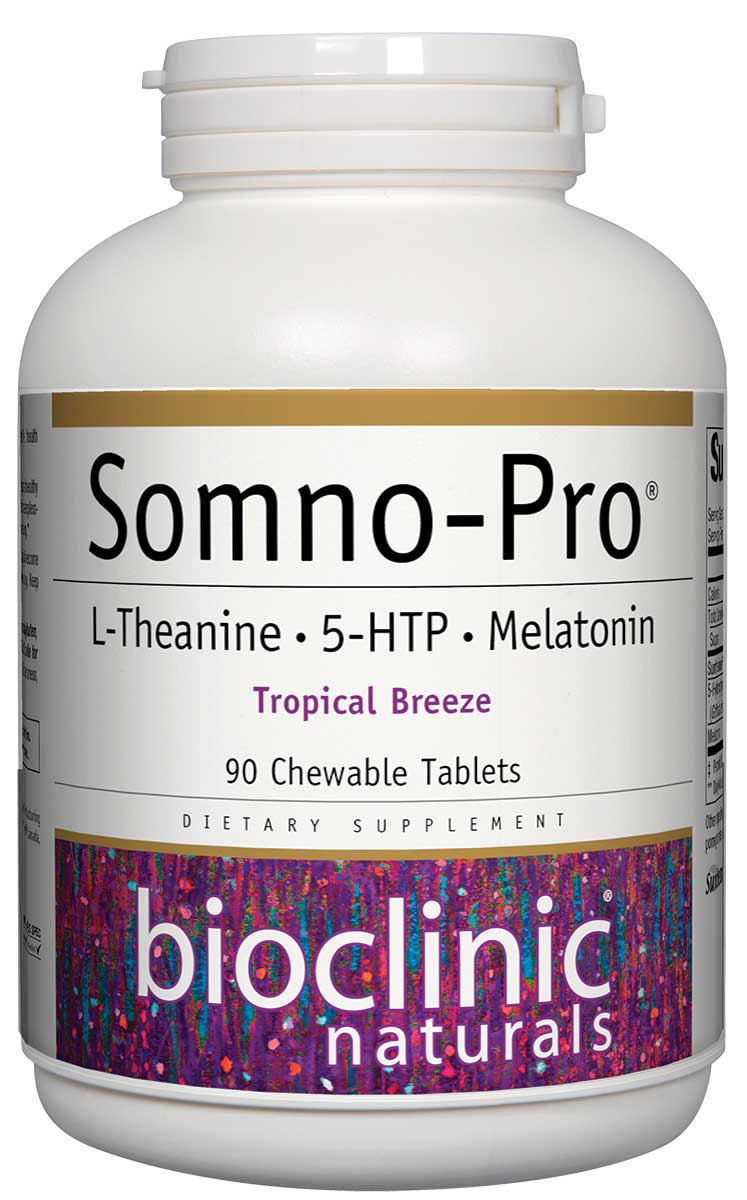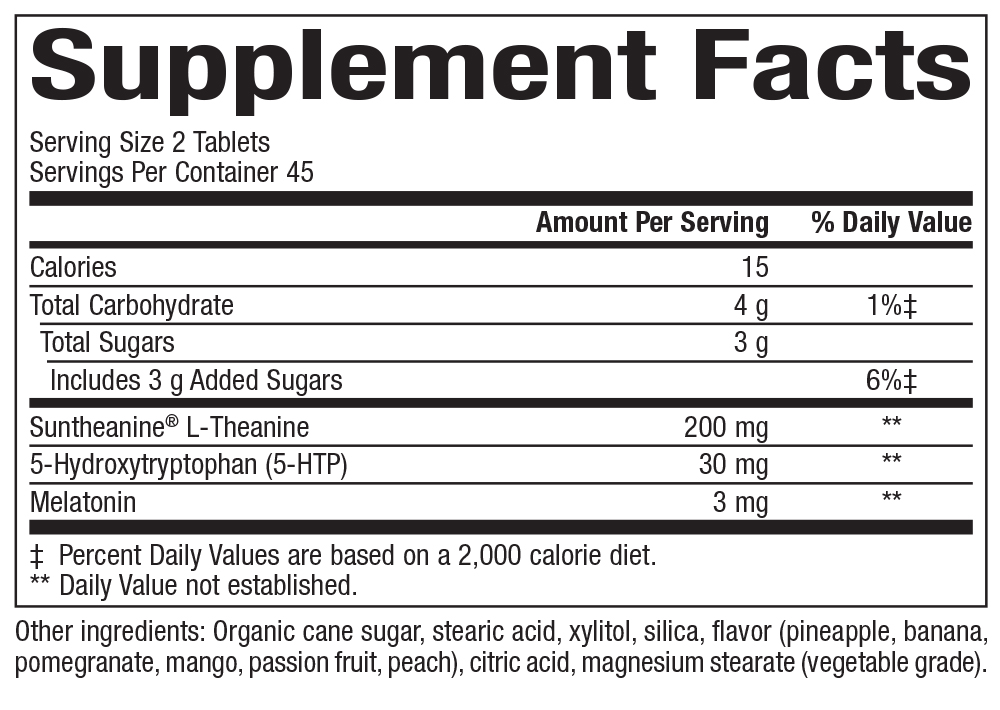
Restful sleep* L-Theanine • 5-HTP • Melatonin chewable
Tropical Breeze
90 Chewable Tablets Tropical Breeze ( SKU: 9281U )
Supplement Facts:

Dosage:
Chew 2 tablets 30-45 minutes before bedtime or as directed by a health care professional.
Warnings:
Consult your health care professional prior to use if you are pregnant, trying to become pregnant, breastfeeding, taking medication or supplements with serotonergic activity (specifically those with SSRIs, MOAs, or depressant/sedative effect), have a medical condition, or anticipate surgery. Keep out of reach of children.
Allergens:
Contains no artificial colors, preservatives, or sweeteners; no dairy, starch, wheat, gluten, yeast, soy, egg, fish, shellfish, animal products, salt, tree nuts, or GMOs. Suitable for vegetarians/vegans.
